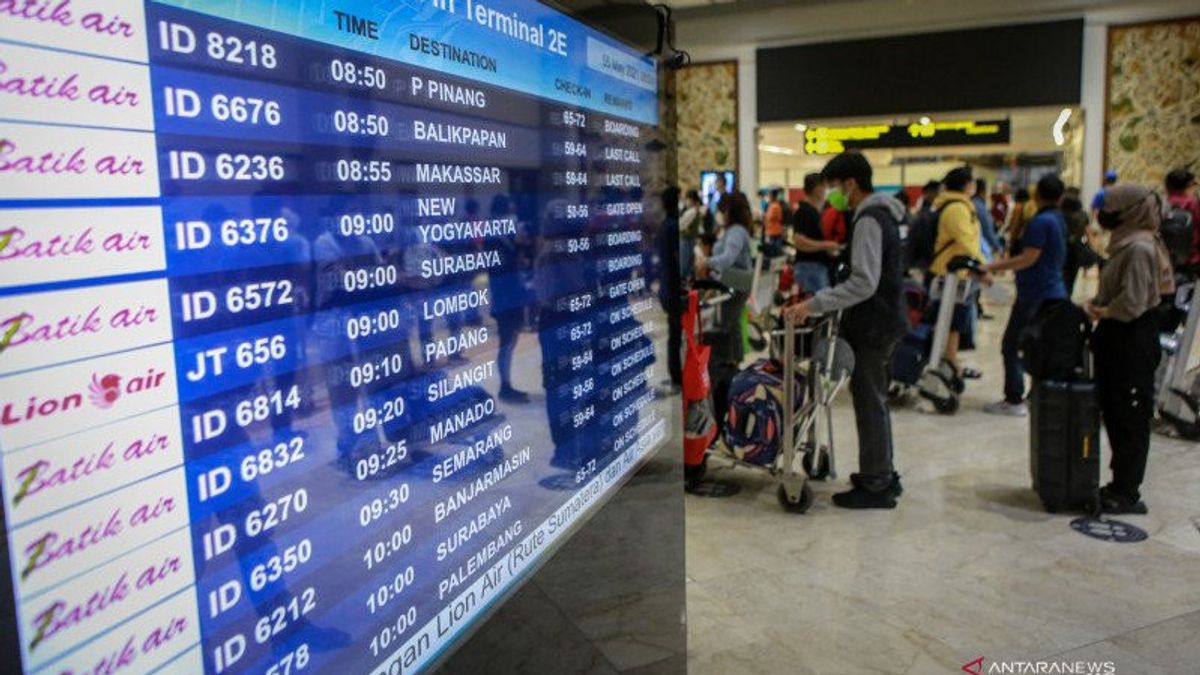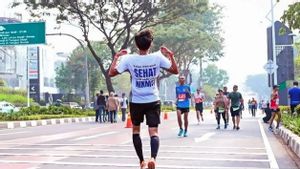JAKARTA - The government has decided to abolish the mandatory PCR test and antigen swab test for domestic travelers via land, sea, and air if they have received a complete two-dose COVID-19 vaccine.
However, the government is reminded not to rush to relax the rules even though positive cases are now sloping.
Epidemiologist from Australia's Griffith University, Dicky Budiman, reminded the government not to rush to relax the rules to prevent the spread of COVID-19. Even though cases are starting to sag, he reminded that this does not mean the virus is gone.
According to Dicky Budiman, this easing should be carried out gradually in a number of areas, the health system is already stronger and the community is more aware of the spread of COVID-19.
"When easing, it must be gradual, not in a sudden, hasty, and large-scale manner," Dicky told VOI, Tuesday, March 8.
Dicky Budiman agrees that the current economic recovery due to the COVID-19 pandemic is needed. However, what must be understood is that the critical condition has not been passed, especially since the number of COVID-19 cases is still going up and down and the death rate is also still increasing.
If the government still insists on relaxing the rules, there must be a number of aspects that must be strengthened in order to prevent the spread of COVID-19. One of them is through early detection of the spread of COVID-19 in the community to increasing surveillance.
In addition, Dicky Budiman continued, strengthening security in the aspect of transportation modes also needs to be maximized, especially in land transportation. "It is the ventilation and air circulation that must be strengthened. Including now, for example, using the train, you don't need to use a test, but the mask must be KN-95, for example. This is to reduce risk and must be done," he said.
Meanwhile, Secretary of the Directorate General of Public Health of the Ministry of Health (Kemenkes) Siti Nadia Tarmizi revealed that the government was removing the mandatory PCR and antigen test rules for various reasons. One of them, the vaccination target has been achieved, namely 91 percent for the first dose and the complete dose has reached 71 percent.
"In addition, our survey results say that 80 percent of Indonesians already have antibodies," he said at an online press conference.
With this condition, vaccine protection has been obtained by the community and community immunity has also occurred. Thus, the potential for massive spread can be reduced.
"Why, because there has been a vaccination, there is a neutralization process for the vaccine. So for people who are vaccinated and of course added with health protocols that remain disciplined, the possibility of transmission will decrease," explained Nadia.
As previously reported, the abolition of the requirements for antigen testing and PCR for train and plane travel is no longer needed, stemming from the results of the Limited Meeting held on Monday, March 7, which was delivered by the Java-Bali PPKM Coordinator, Luhut Binsar Panjaitan.
Luhut revealed, the abolition of the obligation to show a negative COVID-19 test result for travel and the effective date will be ratified in a circular issued in the future.
"Domestic travelers using air, sea, or land transportation who have carried out a second or complete dose of vaccination no longer need to show evidence of a negative antigen or PCR test. This will be stipulated in a circular letter to be issued by the relevant ministries and agencies that will be published in in the near future," Luhut said in a virtual press conference, Monday, March 7.
The English, Chinese, Japanese, Arabic, and French versions are automatically generated by the AI. So there may still be inaccuracies in translating, please always see Indonesian as our main language. (system supported by DigitalSiber.id)













